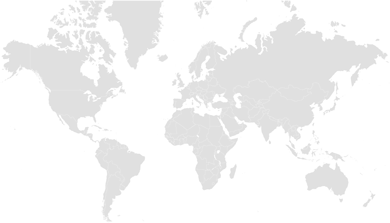Case study
2016 • Food and Environment Research Agency (FERA) Ento-Prise – Supporting smallholder farming through black soldier fly bioconversion
Ento-Prise is a research initiative under the EU-funded PROteINSECT project, aimed at developing a commercial Black Soldier Fly (BSF) bioconversion system for organic waste in Ghana. By establishing pilot and demonstration facilities, the project focused on transforming fruit and vegetable waste into valuable resources like animal feed and compost. The initiative supported smallholder farmers by creating locally produced, cost-effective farming inputs while addressing waste management challenges.
Recovered Materials & Products
Nutrients
Fertilizer
Compost
Black soldier fly larvae
Waste Streams
Organic solid waste
Confirmed countries
United States of America


Background and Context
Location: Greater Accra, Ghana
Resource Stream: Organic waste, primarily fruit and vegetable waste
Challenges: Ghana faces issues such as poor waste collection (20–40% of municipal waste uncollected), high organic waste content (60%), and limited access to affordable agricultural inputs. Smallholder farmers require sustainable solutions to improve agricultural productivity and address declining soil fertility. Simultaneously, the aquaculture sector demands cost-effective, locally produced feed ingredients to reduce dependency on expensive imports.
Technologies/Methods Used
- BSF-Based Waste Bioconversion: Organic waste is processed using BSF larvae, producing dried larvae for animal feed and compost for soil improvement.
- Small-Scale Systems: Facilities were built with a capacity to process 0.3 tonnes of organic waste daily, producing approximately 0.006 tonnes of dried larvae and 0.075 tonnes of compost per day.
- Preprocessing and Postprocessing: Sorting, blending, and crushing organic waste ("LarvaeLunch") are followed by passive sieving for larvae harvesting, which are sanitized, dried, and converted into final products.
Implementation Steps
The first pilot facility was established at Ashaiman, with a larger demonstration plant built in Adenta, Greater Accra.
Farmers and stakeholders received training on BSF bioconversion processes and benefits, ensuring long-term sustainability. The project identified demand for local feed and biofertilizer products, enabling integration into farming practices.
Outcomes and Impacts
- Environmental Benefits: Reduced greenhouse gas emissions compared to landfilling or composting of fruit waste.
- Economic Contributions: Farmers using the facility themselves could earn an annual profit of USD 1,920 with a four-year payback period.
- Social Benefits: Enhanced livelihoods for farmers through access to affordable feed and fertilizers, alongside knowledge-sharing programs.
Lessons Learned
Ento-Prise highlighted the importance of aligning waste management with agricultural productivity needs. While the project demonstrated proof of concept, further optimization is required to enhance system productivity and reduce operational costs. Subsidized or free access to organic waste substrates could improve the economic viability of BSF facilities for smallholder farmers.
Learn more
This case study is extracted from the publication linked below: "Global Experiences on Waste Processing with Black Soldier Fly (Hermetia illucens): From Technology to Business, Joly, G., Nikiema, J. (2019)"
https://www.susana.org/knowledge-hub/resources?id=3733
Technologies
Themes
Capacity building
Technologies